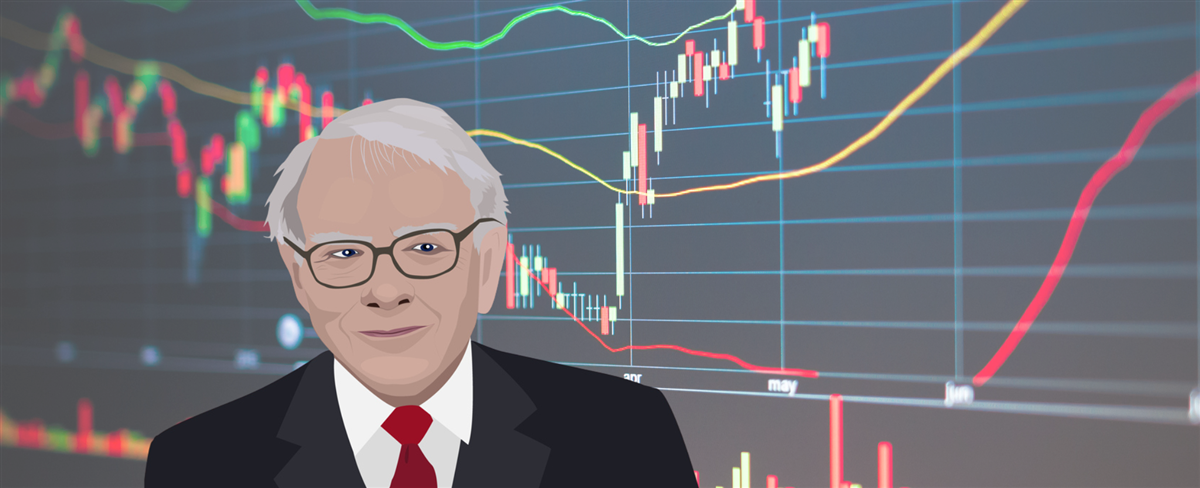
When it comes to famed investors whose moves others watch like hawks, Warren Buffett stands in a league of his own. As one of the world’s richest people, the 94-year-old “Oracle of Omaha” is still the chief executive officer of Berkshire Hathaway (NYSE: BRK.A). The company has many large businesses in insurance, rail, and utilities. It also maintains a large investment portfolio.
As of Q3 2024, the portfolio was worth approximately $266 billion. The holdings are commonly accepted to be the stock picks of Buffett himself. Below, I’ll detail the two best-performing and two worst-performing stocks from the Berkshire Hathaway Q4 2019 13F filing. For simplicity, I’ll be looking at investments that made up 1% or more of the total portfolio’s allocation at that time. All return figures are as of the Jan. 6 close.
The Bad: Southwest Airlines and Charter Communications Disappoint
I’ll start by getting Buffett’s two worst picks out of the way. In the past five years, Southwest Airlines (NYSE: LUV) and Charter Communications (NASDAQ: CHTR) have taken the last and second-to-last spots. They have provided total returns of -30% and -34%, respectively. One positive note is that the negative performance of these names is an outlier. No other holding that made up 1% or more of the portfolio at that time has had a negative total return over the past five years. So, what made these stocks such poor investments?
Starting with Southwest, one obvious cause of its horrible performance is the COVID-19 pandemic. It doesn’t help at all that this analysis started just before the pandemic went into full swing. Southwest is by no means unique in its bad performance when looking at its industry. No U.S. passenger airline stock has come even close to the return of the broader market over the period. Among nine mid-cap or larger U.S. airline stocks, the average return over the period is -11%. Overall, it's hard to blame Buffett for the pick, given it was a result of an event no one saw coming. It’s probably a good thing Buffett exited the position by Q2 2020. The stock hasn’t recovered much since.
It's easier to be more critical of the other worst performer, Charter Communications.
Berkshire has continued to hold the stock, although its allocation has been significantly reduced.
Over the past five years, streaming services have crushed cable and traditional media stocks as more people use them.
Buffett's contrarian bet on cable over streaming through Charter Communications hasn’t worked out.
The Good: Apple and American Express Take the Cake
The best-performing stocks in the Berkshire Hathaway portfolio from Q4 2019 were tech giant Apple (NASDAQ: AAPL) and credit card company American Express (NYSE: AXP). Apple’s five-year total return of 237% over that time beats the S&P 500 by around 140%. Luckily for Berkshire, Apple has consistently remained its largest portfolio holding. It reached over 50% of the total assets back in Q2 2023.
Since fiscal 2019, Apple has increased its revenue by 50% and increased its adjusted earnings per share (EPS) by 127%. Adding to the company’s incredible rise in valuation is an approximately 45% expansion in its forward price-to-earnings (P/E) multiple since the beginning of 2020.
It's reasonable to point out that although Buffett didn’t have any investments in pure-play streaming companies, he did implicitly. This comes through the Apple TV+ streaming service, which launched in November 2019. Berkshire’s portfolio maintains a 26% allocation to Apple as of its latest 13F filing. Interestingly, it is currently the only one of the Magnificent Seven stocks where the firm has a 1% or greater allocation. Amazon (NASDAQ: AMZN) is the only other Mag Seven name in the portfolio, with a 0.7% allocation.
The Goldman Sachs Group (NYSE: GS) has technically been the second-best performer from the Q4 2019 portfolio, with a 182% total return. Unfortunately, Berkshire liquidated the position in Q2 2020.
The next biggest winner, which still remains in the portfolio today, is American Express. It has a five-year total return of 160%. It is currently Berkshire’s second-largest holding, with a 15% allocation.
Using the consensus Q4 2024 earnings estimates, the company will have increased its adjusted EPS by 66% since fiscal 2019. The total U.S. credit card debt is around 26% higher now than it was at the end of 2019, which is a significant tailwind for the company over this period. Additionally, American Express has one of the lowest 30-day delinquency rates in its industry.
The article "How Buffett’s Best and Worst Stock Bets Have Fared 5 Years Later" first appeared on MarketBeat.







